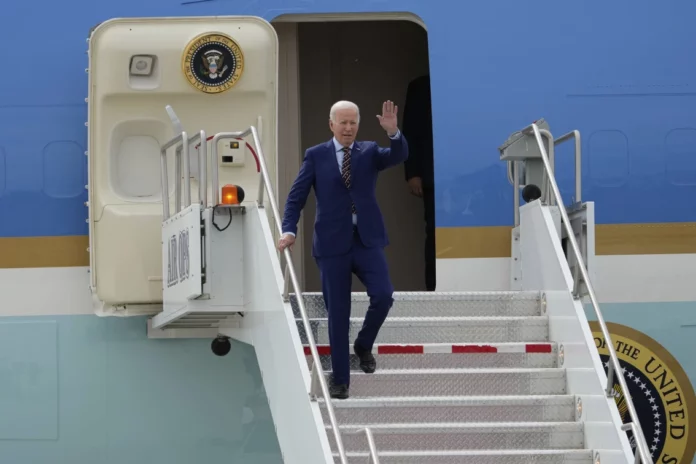The Biden administration has asked Congress to provide more than $13 billion in emergency defense aid to Ukraine and an additional $8 billion for humanitarian support through the end of the year, another massive infusion of cash as the Russian invasion wears on and Ukraine pushes a counteroffensive against the Kremlin’s deeply entrenched forces.
The package requested Thursday includes $12 billion to replenish U.S. federal disaster funds at home after a deadly climate season of heat and storms, and funds to bolster the enforcement at the Southern border with Mexico, including money to curb the flow of deadly fentanyl. All told, it’s a $40 billion package.
While the last such supplemental spending request from the White House for Ukraine funding was easily approved in 2022 despite reservations from Republicans, there’s a different dynamic this time.
A political divide on the issue has steadily grown, with the Republican-led House facing enormous pressure to demonstrate support for the party’s leader, Donald Trump, who has been very skeptical of the war. And American support for the effort has been slowly softening.
White House budget director Shalanda Young, in a letter to House Speaker Kevin McCarthy, urged swift action to follow through on the U.S. “commitment to the Ukrainian peoples’ defense of their homeland and to democracy around the world” as well as other needs.
The request was crafted with an eye to picking up support from Republicans, as well as Democrats, particularly with increased domestic funding around border issues — a top priority for the GOP. The Republicans have been been highly critical of the Biden administration’s approach to halting the flow of migrants crossing from Mexico.
Still, the price tag of $40 billion may be too much for Republicans who are fighting to slash, not raise, federal outlays. As a supplemental request, the package the White House is sending to Congress falls outside the budget caps both parties agreed to as part of the debt ceiling showdown earlier this year.
Senate Majority Leader Chuck Schumer, D-N.Y., said in a statement there was strong bipartisan support in the U.S. Senate.
AP





